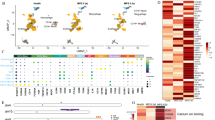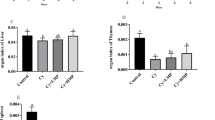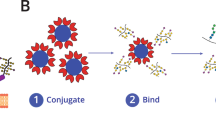Abstract
THE guinea pig lymphocyte has long been known to contain a special inclusion body. Such lymphocytes, called Kurloff cells after their discoverer, increase greatly in number in pregnancy and were shown by Ledingham1 to be produced in both malesand females by administration of œstrogens. Marshall and Swettenham2, by histochemical methods, have shown that the inclusion body is composed of a mucoprotein–sulphated mucopolysaccharide complex. Further work on the chemistry of a mucopolysaccharide fraction by extraction of spleens of œstrogen-treated guinea pigs gave the following results:
This is a preview of subscription content, access via your institution
Access options
Subscribe to this journal
Receive 51 print issues and online access
$199.00 per year
only $3.90 per issue
Buy this article
- Purchase on SpringerLink
- Instant access to full article PDF
Prices may be subject to local taxes which are calculated during checkout
Similar content being viewed by others
References
Ledingham, J. C. G., J. Path. Bact., 50, 201 (1940).
Marshall, A. H. E., and Swettenham, K. V., J. Anat., 93, 348 (1959).
Gardell, S., Acta Chem. Scand., 7, 207 (1953).
Author information
Authors and Affiliations
Rights and permissions
About this article
Cite this article
MUIR, H., MARSHALL, A. Chemistry of a Mucopolysaccharide produced by Guinea Pig Lymphocytes. Nature 191, 706 (1961). https://doi.org/10.1038/191706a0
Issue date:
DOI: https://doi.org/10.1038/191706a0



